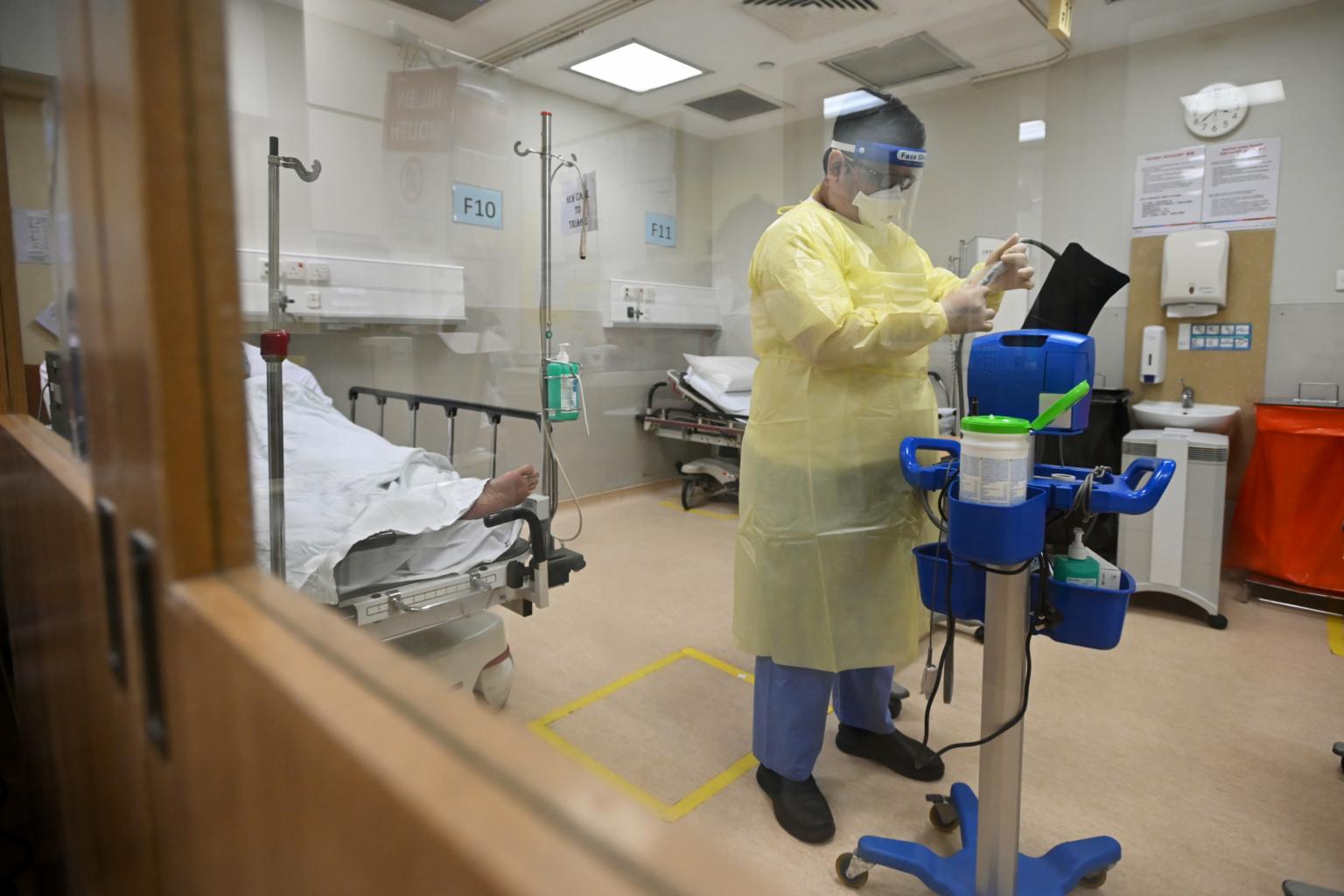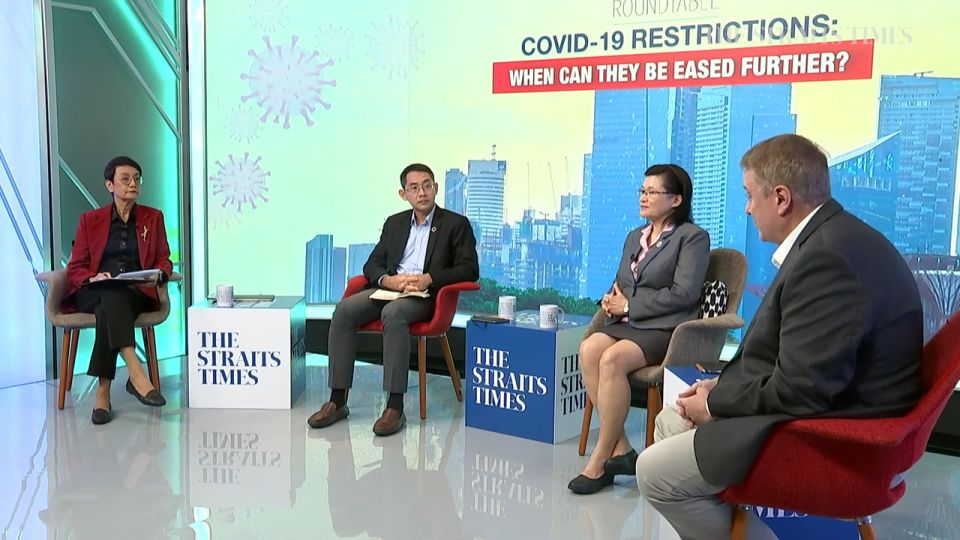March 16, 2022
SINGAPORE – The daily Covid-19 case count peaked about three weeks ago and has been declining since, but public hospitals are still seeing a heavy patient load, said experts.
This is because there is always a lag of about two weeks for the situation in hospitals to catch up with the peak in case number reporting.
Healthcare workers are also dealing with a growing number of non-Covid-19 cases that have been building up, given the focus on coronavirus patients in the last two years.
National Centre for Infectious Diseases executive director Leo Yee Sin said the current pressure on the healthcare system comes from other illnesses as well.
“We have to look at the totality of the critical services currently within the healthcare system. How can we cater to all the needy patients regardless of Covid-19?” she said.
Professor Leo was one of three panellists speaking on Tuesday (March 15) at the Covid-19 Restrictions: When Can They Be Eased Further? discussion hosted by The Straits Times and held at SPH Studios in Toa Payoh.
She noted that many of Singapore’s earlier healthcare protocols were based on the disease patterns observed in the Delta variant. When the less severe Omicron variant emerged, these protocols led to a significant number of patients being admitted to hospitals when they might have been better off recovering at home.
But Prof Leo added that most hospitals have reorganised themselves to better care for patients infected with the newer variant.
For instance, many hospitals now care for patients in cohorted facilities, which means housing several Covid-19-positive patients together, instead of isolating them individually.
Most hospitalised patients with Covid-19 now tend to be older and have other conditions such as stroke or heart disease, she said.
She added that there will be a need to balance the needs of the healthcare system with those of other sectors as Covid-19 cases fall.
Professor Dale Fisher, a senior infectious diseases consultant at the National University Hospital, and infectious diseases expert Teo Yik Ying agreed it was important to keep an eye on the healthcare system.
Still, there can be an easing of safe management measures without serious impact on the system, they added.
What is important, though, is that Singapore needs to be prepared for a return of restrictions if the situation worsens.
Prof Fisher said the assumption is that the measures contribute to controlling case numbers in a major way. But he argued that they can, in fact, be rolled back gradually without impacting hospitals.
He added that people are unlikely to be satisfied with being allowed to have just five visitors to a household at any one time, and questioned if having 10 vaccinated people together in one place would really “destroy hospitals”.
“The psyche of people, I think, will benefit a lot from not having to wear a mask when you are outside, and being allowed to have 10 people at your home for a birthday or for Christmas or Chinese New Year.”

Most hospitals have reorganised themselves to better care for patients infected with the Omicron variant. ST PHOTO: LIM YAOHUI
At the session, moderated by ST senior health correspondent Salma Khalik, Prof Fisher said that healthcare workers also want their lives outside of work to return to normal.
“The people that are vulnerable – there is no doubt they exist. They will get Covid-19 just as people get flu and get serious illness,” he said.
“We knew from the trials that vaccines were not 100 per cent effective, so we always expected this. Part of the future needs to be – how do we protect those individuals without impacting the whole of society?”
Professor Teo, who is dean of the National University of Singapore’s Saw Swee Hock School of Public Health, said that the decision to relax Singapore’s Covid-19 measures hinges on whether the healthcare system is ready for it, as infections will certainly go back up once the authorities do so.
But he predicted that most of the prevailing measures in place to curb Covid-19 will be eased this year.
Prof Fisher said Singapore should still be prepared for measures to be stepped up if cases surge and hospitals begin filling up again in future due to new variants of concern or waning immunity.


